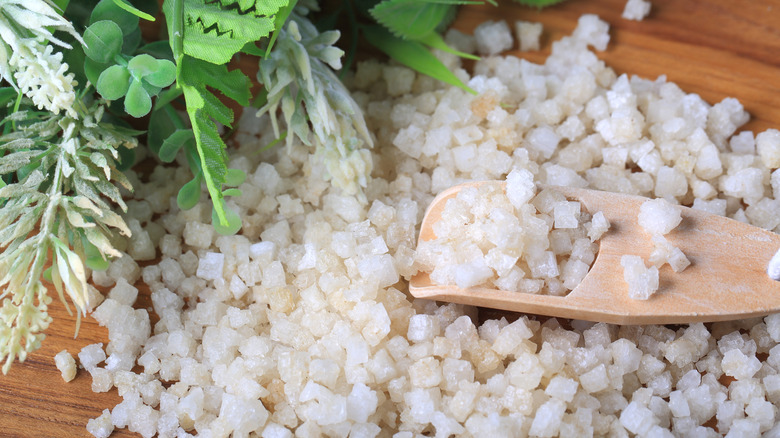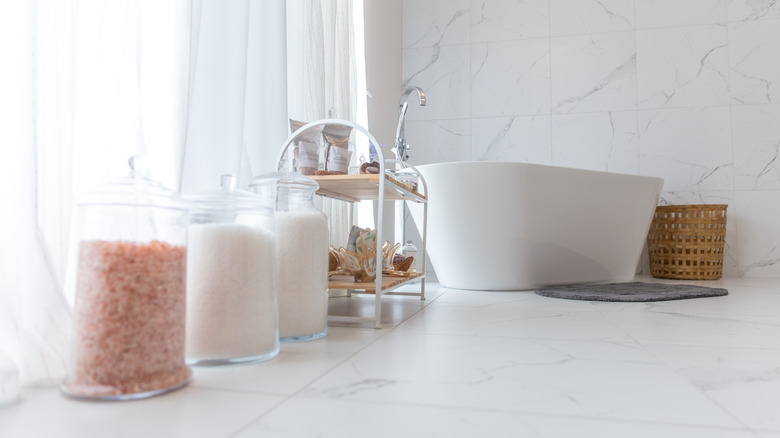Can Epsom Salt Go Bad? What To Know Before Using It Around The House
You probably know Epsom salt as a trusted miracle worker for tired muscles, a solution for sparkling tile floors, or even a magnesium fertilizer boost for your mums, but have you ever wondered if it can lose its effectiveness over time? While this household staple seems almost timeless, take a closer look at the packaging and you'll spot an expiration date. This date isn't a strict deadline but rather an indicator of when the salt may start to lose its potency. While the expiration date is a helpful guide, with the right storage, your Epsom salt can stay potent for years.
Epsom salt can be a bit finicky when it comes to storage. Exposure to humidity can cause it to absorb moisture, resulting in a loss of effectiveness, and it shouldn't be stored in direct sunlight or extreme temperatures. To keep it in top condition, store the salt in a cool, dry place and always seal it in an airtight container. This will protect it from moisture and other environmental factors, helping it last well beyond its expiration date.
Simple ways to gauge the effectiveness of Epsom salt
Even with proper storage, there's always a chance that Epsom salt can lose some of its magic. The first thing to look for is clumping, which is what happens when the salt absorbs any amount of moisture. While this may seem concerning, it doesn't necessarily mean the salt is ineffective. Revive the Epsom salt by spreading it on a baking tray to dry out and breaking up the clumps.
If you suspect your bag of salt may need to be replaced, there are a few telltale signs to look for. First, you can perform a quick-dissolving test. All you need to do is add a small amount of the salt to hot water. If it dissolves completely and easily, you have the green light to continue to use it. But if it doesn't or leaves behind any residue, you may want to replace it.
Under normal circumstances, Epsom salt carries a faint, earthy scent. If you open the salt's container and are greeted by any type of strong or unpleasant smell, its quality is likely compromised. Lastly, Epsom salt is known for its white crystals and soft texture. Any change in this such as yellowing or a granular, rough feel are red flags. It may have been contaminated with dirt or other impurities. By recognizing these signs of degradation, you can safeguard its efficacy for a variety of ways to use Epsom salt around the house.

